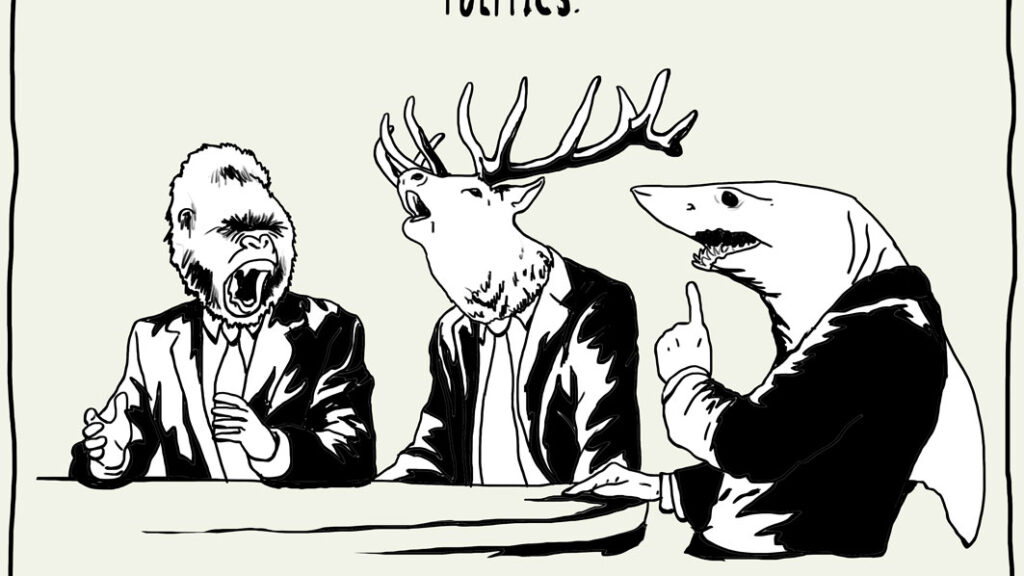
August 18, 2020 • Brooke Siem
The easiest way to change your life? Just ask.
Happiness Is A Skill is 10 weeks old today! Such a wee milestone in the grand scheme of life, but in internet years, HIAS is entering its awkward teenage years. I’ve been at it just long enough to know it needs some tweaks, but not so long that I know what those tweaks are.
And so I ask, what do you want to see? Tell me how I can help you.
If you prefer actionable issues like last week’s How To Neuter Your Social Media for Optimal Mental Health over more thought-provoking issues like Awakening to the Work of a Human Being, tell me. If you want fewer things to read and more product recommendations, tell me. If you want more of a psychiatry focus, tell me. More philosophy, tell me!
If I am asking, it means I want your input. In fact, I need your input to make this work the best it can possibly be. That is why we ask for help — to get the information we don’t have in order to make our lives and projects better.
And yet, few people ask for what they need, and even fewer ask for what they want. Instead, they sit and wait for someone else to intuit the answer and take action, which never happens.
It took me 31 years to understand the power of asking. For most of my life, I operated in a paradigm of radical competency. Asking for anything, help or otherwise, was not part of my vocabulary thanks to a healthy fear of looking stupid and of appearing “high maintenance.” My strategy, instead, was to keep my mouth shut and — when smartphones entered the lexicon — excuse myself and Google answers in the bathroom.
The problem with this strategy is that it does not expand knowledge or possibility. At best, you get a quick answer. At worst, you get no answer. It does not offer any room for discussion and actually stops us from engaging in the deeply human urge to help each other.
Research (and common sense) tells us that doing good in the world not only makes us feel better but that it is good for us. This holds true for actions big and small and is not confined to altruism or volunteering. Simple actions, like giving someone directions or showing your support for someone who is suffering, benefit you too. These actions, defined as prosocial behavior, create heightened empathy and responsibility toward others, which in turn bring a sense of meaning and purpose to the helper. By refusing to ask for help, you cut off the opportunity for someone else to engage in prosocial behavior that benefits both of you.
I realized the power of asking somewhere in the Portuguese countryside, back in 2017. I was leaving a restaurant with a group of friends, unopened bottles of wine in hand. As we boarded the van, someone realized that we didn’t have a corkscrew. Because there was an element of drinking to the day, this was a clear problem. While a group of us tried to (poorly) communicate with the driver to see if we could make a stop somewhere to buy a corkscrew, a woman named Michelle rolled her eyes and said, “I’m just going to ask the restaurant to give me one.” She bounded off the bus and back into the establishment.
I couldn’t believe the audacity. She was going to ask a restaurant to give her a corkscrew for free? How…rude?
Michelle returned a few minutes later, waving the corkscrew above her head.
“They just gave it to you?” someone yelled from the back of the van.
“Yeah?” she shrugged, befuddled at our bewilderment. “It wasn’t a big deal. People will do anything if you just ask for what you want.”
And it’s true. After the corkscrew moment, I began testing the asking waters. Here’s a shortlist of things I’ve received over the past few years just because I asked:
- My job as a recipe developer for Working Against Gravity. They didn’t post a job, but I saw a need for my services so I emailed and asked to work with them.
- Raising my price per word for another client from $.35 to .$50.
- Countless upgrades in seating arrangements, from tables at restaurants to airplane seats
- A major medical bill reduction
- Endless refunds for shoddy products
- A close friend, after being the first one to ask to spend time together
- An endorsement blurb for my book from an internationally recognized author (and he hasn’t even read the book.)
- A short-term rental apartment in Seattle
Of course, it’s important to recognize the difference between asking for what you want and taking advantage. Asking a restaurant to take back a salad because the chicken is burned to a crisp is different than eating most of the salad, sending it back, ordering a steak instead, and then expecting the steak to be comped on the house.
Tone and wording are important, too, which is where the idea of prosocial behavior comes back into play. Asking for what you want — and getting it — hinges on reciprocity. Someone else has to do something for you, and the best way to make that happen is for the other person to benefit, too.
When dealing with a medical bill, for example, asking “Can I have a discount?” sends a very different message than, “Is there anything you can do to help me?” The former is self-serving, whereas the latter asks the other person to be the hero. And people like to be the hero because it makes them feel good.
Asking doesn’t always guarantee a “yes,” but the more “no” you get, the less each one stings. It all becomes second nature after a while, and the universe flows a little easier.
So I ask, what do you want to see? How can I help you? Respond to this email and I promise, I’ll get back to you!

Amanda Palmer: The art of asking | TED Talk — www.ted.com
Amanda Palmer is a controversial singer and artist who garnered media attention—and a good chunk of revenue—when she walked away from her big music label and started giving away her music for free. Her strategy? Ask people for support and give them meaningful work in return. They will always come through.

7 Effective Ways to Ask for Help (and Get It) | Psychology Today Canada — www.psychologytoday.com
You know you should ask for help…but how? This article breaks down seven different strategies.

Selfless acts: How Americans are helping each other through the coronavirus | TheHill — thehill.com
The news only shows the doom and gloom, but all over the wold, people are stepping up and helping each other.
More articles from the blog
see all articles
October 28, 2022



